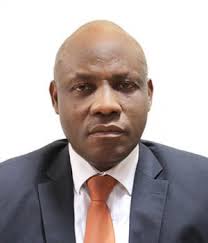The Central Bank of Nigeria (CBN), at the weekend directed commercial banks to resolve disputes associated with the use of Unstructured Supplementary Service Data (USSD) channel within three days.
The apex bank’s Director, Banking & Payment Systems Department, ‘Dipo Fatokun, who gave the charge while speaking at the ‘Meet The Executive’ forum organised by Finance Correspondents Association of Nigeria (FICAN) in Lagos, said that quickly resolving the dispute would help build confidence in the payment system and bring more people into the financial services net.
According to him, rather than creating hiccups, some provisions of the regulatory framework for USSD such as the authentication measures for transactions, International Mobile Subscriber Identity (IMSI), Date of SIM Swap, Date of Device change, International Mobile Equipment Identity (IMEI) among others were meant to make the channel more effective.
Fatokun, who was represented by Assistant Director, Banking & Payments System Department, Taiwo Oladimeji, said maximum USSD transaction limit remained N100, 000 per customer per day and that any amount above the limit required a customer to execute indemnity at the bank.
He said: “USSD transactions above N20,000 require two-factor authentication (2FA). No USSD financial service should be activated for customer unless the deactivation mechanism is put in place with effect from October, 2018.
”In addition, the CBN is currently working to properly structure and formalize the sandbox arrangement in Nigeria by collaborating with some infrastructure providers like the Nigeria Interbank Settlement System (NIBSS) to interact with FinTechs”, the Director added.
He described the financial system as undergoing far-reaching transformation through technology as a response to the emerging trends in other sectors of the global economic system, adding that the changes require capacity building at all levels.
Fatokun clarified further: “We are seeing new operators with technology savvy, more efficient models, and collaborations among new entrants as well as established participants in payments systems in ways that exhibit regulatory challenges. To meet up with the challenges, some countries have adopted regulatory sandbox approach which is not totally novel to the CBN. We are however working to properly structure and formalize the sandbox arrangement in Nigeria by collaborating with some infrastructure providers to interact with FinTechs.”
The banker pointed out that a well-functioning National Payments System (NPS) was crucial to the financial sector development as it increases confidence in the financial sector by ensuring a credible, reliable and efficient payment system.
This is even as he recalled that in recent years, the nation’s payment landscape had experienced a lot of innovation, characterized by growing enterprises and reaching the unbanked and undeserved.
On the issue of consumer protection, Fatokun explained that this involved a whole range of laws, policies, structures, actions and behaviours aimed at protecting consumers from the abuse and exploitation of service providers.
According to him, consumer protection is critical in improving access and usage of financial products and services and also ensures that increase access and usage of financial services, translate into benefits for the economy and individuals, amongst other benefits.






